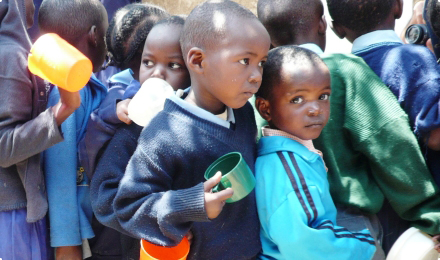News & Updates
Mercy Corps Research Report on Stability in Sub-Saharan Africa
20 February 2017

Mercy Corps research report “Financing the Frontier: Inclusive Financial Sector Development in Fragility-Affected Africa” commissioned by Financial Sector Deepening Africa and supported by the UK Department for International Development (DFID). The research examines the impact of inclusive financial sector development on poverty, fragility, and stability across Sub-Saharan Africa.
Poverty rates in Africa’s states and regions considered ‘fragility-affected’ are, on average, 20% higher than countries with comparable levels of economic development (DFID, 2016). The gap is widest for countries affected by repeated cycles of violence. Finance can play a crucial role in poverty and conflict cycles, as lack of equitable access to financial services can lead to underdevelopment and stagnation, exacerbating social and economic unrest. The research finds that donor and development actor investments in financial inclusion is one of the best strategies for future investment in fragile-affected countries and regions.
This research has global implications for regions facing similar challenges.
Key Findings and Recommendations:
Populations facing fragility often have limited trust in financial institutions and low risk tolerance: FASA have lower rates of formal salaried employment (on average 12%) equating to high informality and income insecurity, which effects household consumption and production decisions. This results in a need for a wide-range of financial services to build assets, manage risks, and smooth consumption. In fragile situations, individuals often become more risk averse and invest less. Commercial actors can find it difficult to find entry points for investments.
Fund promising trends for finance in FASA: The document advocates for investments in ID solutions and ‘fit for purpose’ regulations and seven promising trends:
Market segments: (1) Islamic finance and (2) solutions for refugees and displaced populations
Financial delivery channels: (3) impact investing and (4) payments and remittances infrastructure
Financial products and instruments: (5) inclusive insurance, (6) liquidity funds and credit guarantees, and (7) diaspora investment platforms.
Market System Solutions are Still Relevant: While each FASA situation is unique and complex, using a market systems approach is an opportunity for donors and development actors to adjust tactics but adhere to several key principles: think long-term, do not ignore the informal sector, ensure a positive business case, carefully sequence interventions, and utilize a diverse package of smart aid instruments.
We hope you find the recommendations useful; please feel free to share the report with your AIDF network.
To read full report visit fsdafrica.com
John Burns, Program Director, Kenya and Ronald Rwakigumba, Uganda Country Coordinator, Agri-Fin Mobile, Mercy Corps will be speaking at the 2nd annual Aid & Development Africa Summit. For more information visit africa.aidforum.org
Image credit: http://www.eoi.es